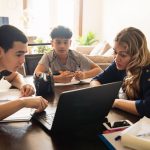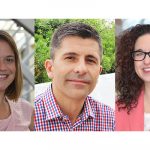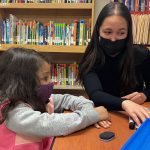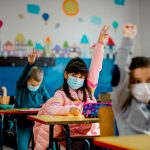Educational Psychology Professor Joseph Madaus and Literacy Education Professor Rachael Gabriel are part of a team that will provide several resources, workshops, and tools to neurodiverse graduate students to improve their success in graduate programs and give them skills that prepare them for careers in academia and business.
Six UConn students have been selected as recipients of a grant through the Fulbright U.S. Student Program for the 2021-22 academic year. The program provides grants for individually-designed study and research projects or for English teaching assistantships around the world. Students meet, work, live with, and learn from the people of the host country, sharing daily experiences.
Neag School students completing the UConn Administrator Preparation Program (UCAPP) this spring recently presented their capstone projects – the program’s signature final assignment in which students identify a need or opportunity for school improvement and work toward positive change. The UCAPP program went through a redesign in 2020 as part of a nationwide effort known as the University Principal Preparation Initiative (UPPI), funded by the Wallace Foundation. As a result of the redesign, the concept of family and parent engagement became a priority for the first organizational leadership course in UCAPP’s program of study.
Throughout the academic year, the Neag School is proud to share the latest achievements of its faculty, staff, students, and alumni. Explore their most recent promotions, awards, retirements, publications, and more.
As the world of science, technology, engineering, and math (STEM) becomes increasingly computational, promoting students’ computational thinking is essential to prepare them for future STEM careers. Neag School of Education assistant professor of learning sciences, Ido Davidesco, has received a $1.4 million grant from the National Science Foundation (NSF) to develop a month-long computational thinking unit in high school biology classes.
Isabella “Bella” Gradante ’20 (ED), ’21 MA says she always knew she would pursue a career in education, having been raised by a family of educators and around schools her whole life. It wasn’t until she entered her master’s year in the Neag School’s Integrated Bachelor’s/Master’s (IB/M) program that she found what truly called her to the field: the practice of culturally relevant and sustaining teaching.
We are featuring some of our Neag School Class of 2020 graduating seniors. Click each student image below to read a Q&A with each individual.
Thanks to 889 individuals, the Neag School of Education garnered more than $50,000 in contributions during this spring’s annual Giving Day at UConn.
“As many schools in the U.S. figure out how to safely and fully resume in-person instruction, much of the focus is on vaccinations. But there’s another type of ‘vaccine’ that may be beneficial for some returning K-12 students that could be overlooked. Those are known as ‘behavioral vaccines.'”
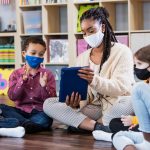
For educators, families, and communities, April is bringing a welcome sign of hope to a year of unchartered challenges as political unrest, COVID-19, social and racial disparities, and violence have disrupted and dismantled our schools’ traditional approach to education. The appointment of Miguel A. Cardona as the 12th Secretary of Education and the passing of the American Rescue Plan of 2021 does make it feel like spring, in fact, has sprung. The possibility of equitable school environments for our nation’s children appears tangible, however, recovery must attend to more than filling holes with intent to return to a “new normal.”
Students desperately need support as they try to overcome current challenges to academic learning, physical health, and social-emotional connection. Meanwhile, school leaders must focus on coordinating policies and practices that put equitable structures in place for every child. While the necessary federal leadership and funding provide necessary first steps to tackling multiple points of support to the education infrastructure, we propose that schools reopen not with a “new normal,” but a “better normal” — one where we carry out only a few highly effective actions really well.


